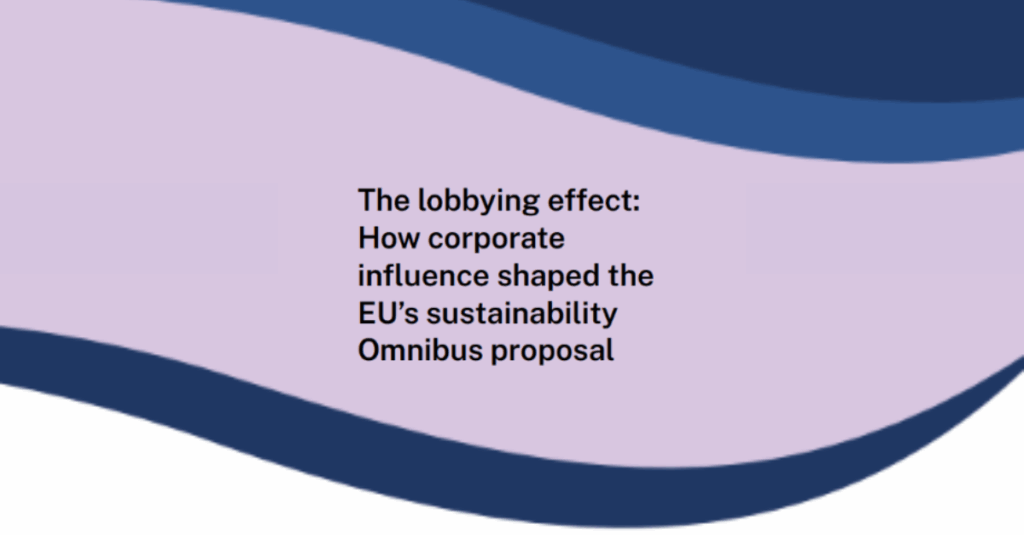
New research from Social LobbyMap has today revealed how corporate influence continues to shape the future of the EU’s Corporate Sustainability Due Diligence Directive (CSDDD). The analysis highlights a striking imbalance: while many companies, including SMEs, support robust human rights and environmental due diligence, some trade associations are lobbying more intensively to weaken or delay implementation.
The report comes at a critical moment. Just months after adopting the CSDDD in April 2024, the European Commission has reopened the law under its “Omnibus Simplification” package, proposing significant rollbacks such as limiting due diligence to Tier 1 suppliers and removing civil liability provisions. These proposals are set against wider debates about competitiveness and simplification following the Draghi Report.
Corporate influence in action: Key findings from the Social LobbyMap analysis
- Trade associations are out of step: Associations are generally more oppositional than individual companies, with some firms—including Nestlé, Unilever, and L’Oréal—publicly dissenting from some of their industry groups’ positions.
- Imbalance of influence: Trade associations’ lobbying intensity is significantly higher, meaning supportive company voices are often overshadowed.
- Sectoral divides: Food and apparel companies are among the strongest supporters of due diligence, while cross-sectoral associations, oil & gas, and financial trade bodies lead opposition.
- SMEs are stepping up: A group of German SMEs opposed the weakening of standards, challenging the narrative that due diligence obligations are too burdensome for smaller businesses.
- Divisive issues: Civil liability and value chain scope remain the most contentious areas, with new debates emerging around whether companies should be required to end harmful business relationships.
Elissandra da Costa, Social LobbyMap Director, said:
“Our research shows a worrying disconnect: while many companies are ready to implement strong due diligence, their trade associations are lobbying to weaken standards. The louder, more coordinated voices risk distorting policymaking at a crucial stage. With the European Parliament preparing to vote on the Omnibus package, it is vital that policymakers recognise this imbalance and listen to the full diversity of business perspectives.”
The report comes as the European Parliament prepares its General Approach on the Omnibus in October 2025, with trilogue negotiations to follow. The findings shed light on how corporate influence is not only impacting the future of the CSDDD but also broader EU commitments to human rights, sustainability and democratic accountability. Beyond Europe, countries such as Thailand are introducing their own due diligence rules, underscoring the global importance of transparent policymaking.
Read the full report now. For media enquiries email lisa.stonestreet@eirisfoundation.org. To find out more about Social LobbyMap email social.lobbymap@eirisfoundation.org
